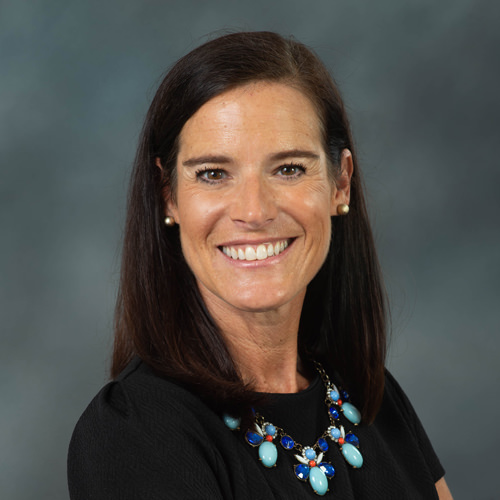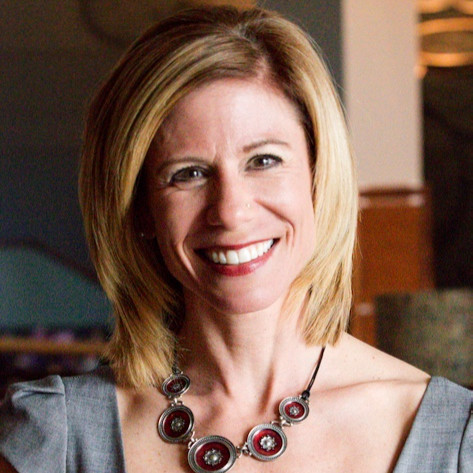Customer Service Skills Training: Certification for Higher Education Professionals
This event has ended.

Customer Service Skills Training: Certification for Higher Education Professionals
This event has ended.
Gain the knowledge and skills you need to get certified and provide high-quality customer service in higher education.
Event Information
As competition in higher education intensifies, so do the appetites of prospective students for institutions that provide the best education and experience for their tuition dollars. Instilling a culture of service excellence at all levels of an institution can directly enhance enrollment and improve student retention. The COVID-19 pandemic has had an undeniable impact on both the student and employee experience. And with the pending enrollment cliff, institutions will need to retain students at a higher rate, making service excellence more important than ever before.
Join us for this virtual learning experience developed for higher education frontline customer service professionals and those who supervise them. Through interactive and small-group activities, you will dive into:
- The critical competencies of good customer service in higher education.
- Maintaining consistency across service channels.
- Communication strategies and scripting.
- Assisting difficult customers.
- Inclusive practices in service excellence.
- Measuring and assessing your customer service culture—including conducting “Servicescape” Audits.
- Demystifying “The customer is always right.”
- Distinguishing between external customers (students, parents and guardians, alumni) and internal customers (faculty, staff, student workers, etc.).
You will leave this training with increased confidence in your customer service skills and a greater ability to handle a wide variety of service scenarios.
Watch our expert faculty talk about why getting customer service right is key in higher education:
Who should attend?
This virtual conference has been designed for managers and frontline staff across higher education. The program will especially benefit you if you are:
- A frontline service provider looking to enhance your customer service skills.
- A manager or director supervising frontline service providers who are looking to bring training ideas back to your institution.
- A campus leader looking to lead cultural change and implement a service excellence program.
Agenda
Day One – Wednesday, November 13, 2024
Welcome and Introductions
11:30 – 11:45 a.m. ET
Defining Service: How Does Customer Service Impact Higher Education?
11:45 a.m. – 12:30 p.m. ET
What defines good vs. bad customer service? We’ll dive into customer service models and research here that will enhance your understanding of the role customer service plays within higher education. This interactive session will set the stage for the rest of this event and provide strategies to educate, lead, and empower others to shift towards a culture of service excellence at your institution.
Break
12:30 – 12:45 p.m. ET
Policies and Practices That Impact Service
12:45 – 1:45 p.m. ET
Higher education is a place where policies—formal and informal—proliferate. This session will provide examples of formal policies that have implications for the way you provide service. It will also challenge you to think about informal policies or practices that may be creating service barriers.
Break
1:45 – 2:15 p.m. ET
Competencies for Service Excellence
2:15 – 3:15 p.m. ET
This session will provide an in-depth, example-based overview of the various competencies you need in order to provide high-quality customer service to students in today’s higher education environment. We will discuss different types of competencies, including physical, emotional, knowledge-based, environmental, and cross-cultural. You will leave with a self-assessment that you can use to measure your own customer service skills, and that will help you to identify areas of strength and opportunities for growth going forward.
Break
3:15 – 3:30 p.m. ET
Enhancing Communications through Scripting
3:30 – 4:50 p.m. ET
This session will focus on the art of scripting as a means of ensuring consistency across service channels. You will be given time at the end of the session to write your own scripts for phone, email, face-to-face, and virtual conversations, including greetings, closings, and apologies.
Day Two – Thursday, November 14, 2024
Day Two Welcome
11:30 – 11:45 a.m. ET
Active Listening & Communication Strategies
11:45 a.m. – 12:45 p.m. ET
You will build upon your knowledge of scripting to look more holistically at the four key phases of the conversation cycle. You’ll learn helpful techniques for navigating unclear student requests and questions, as well as how to avoid using jargon in your interactions with students.
Break
12:45 – 1:00 p.m. ET
Practice: Role-Playing
1:00 – 1:45 p.m. ET
During this role-playing activity, you will break into groups and work together to practice and apply the scripting and conversation cycle techniques you learned in the previous sessions.
Break
1:45 – 2:15 p.m. ET
Inclusive Practices in Customer Service
2:15 – 3:15 p.m. ET
Unconscious bias impacts both the customer and the service provider. Participants will identify ways to adjust service practices and styles based on specific customer and service provider differences and needs. The importance of cultural sensitivity, awareness, empathy, listening, and even “passive” approaches to pluralism will also be addressed.
Break
3:15 – 3:30 p.m. ET
Measuring and Assessing Your Customer Service Culture
3:30 – 4:15 p.m. ET
We will explore a variety of measurement and assessment tools and techniques that can be used to gauge the quality of the customer service that your department, unit, or institution currently provides. You’ll also be given time to begin formulating and adapting some of these tools to your own context.
Day Two Close and Exam Study Guide Distribution
4:15 – 4:30 p.m. ET
Day Three – Friday, November 15, 2024
Optional Networking Time
11:00 – 11:30 a.m. ET
During this optional networking time, you can discuss specific institutional concerns with our experts and your peers, on topics such as the continued impact of the pandemic, staffing challenges, and more.
Day Three Welcome
11:30 – 11:45 a.m. ET
Assisting with Difficult Customers
11:45 a.m. – 1:15 p.m. ET
From students, to colleagues, to parents and alumni, you are likely to come across a variety of stakeholders who can be challenging to assist. This session will focus on how to manage the occasional difficult and/or potentially volatile situations in which you may find yourself. We will discuss best practices for saying no, ensuring safety, escalating the situation, asking for help, and adhering to your service standards. You will be given time at the end to role-play in small groups and practice the techniques you learned.
Break
1:15 – 1:45 p.m. ET
Service Excellence Visioning and Action Planning
1:45 – 2:45 p.m. ET
Building a vision and action plan is critical to moving your service excellence work forward. This interactive working session will provide space for you to identify the barriers you will likely encounter, the champions from whom to get buy-in, and the next steps for enhancing service excellence in your role. You will also work through a visioning exercise that will help you to begin the conversation about strengthening service with teammates in your unit.
Conference Close: Final Q&A and Next Steps for Certification
2:45 – 3:15 p.m. ET
We will use our final half-hour to answer any outstanding questions and provide you with more information about the online certification exam. To receive your Service Excellence Certification, you must successfully complete an online exam that will help you to solidify and demonstrate your learning. Attendees will receive a link to the exam after the close of the conference and will then have two weeks to complete it.
Reviews
“Charismatic professionals who delivered material well, with well-prepared, on-point presentations, and who had a good understanding of who (we are), and what we do…”
“I liked that it focused on university customer service. We’ve received so many retail-type training sessions from our Enrollment Management and Student Services Office that aren’t really applicable to our normal everyday interactions.”
“I liked that the training was specific to higher ed, and that all presenters were very knowledgeable in this area.”
“The facilitators were excellent. They managed to keep a very large group engaged and on topic. They were skilled at bringing discussion back to the topic at hand when things got off.”
Tagged In

Eileen Soisson
Independent Consultant & Director of Wall Fellows, Coastal Carolina University

Melanie Hulbert
Sr. Executive Director of Academic Equity and Student Support, University of Alaska, Anchorage


